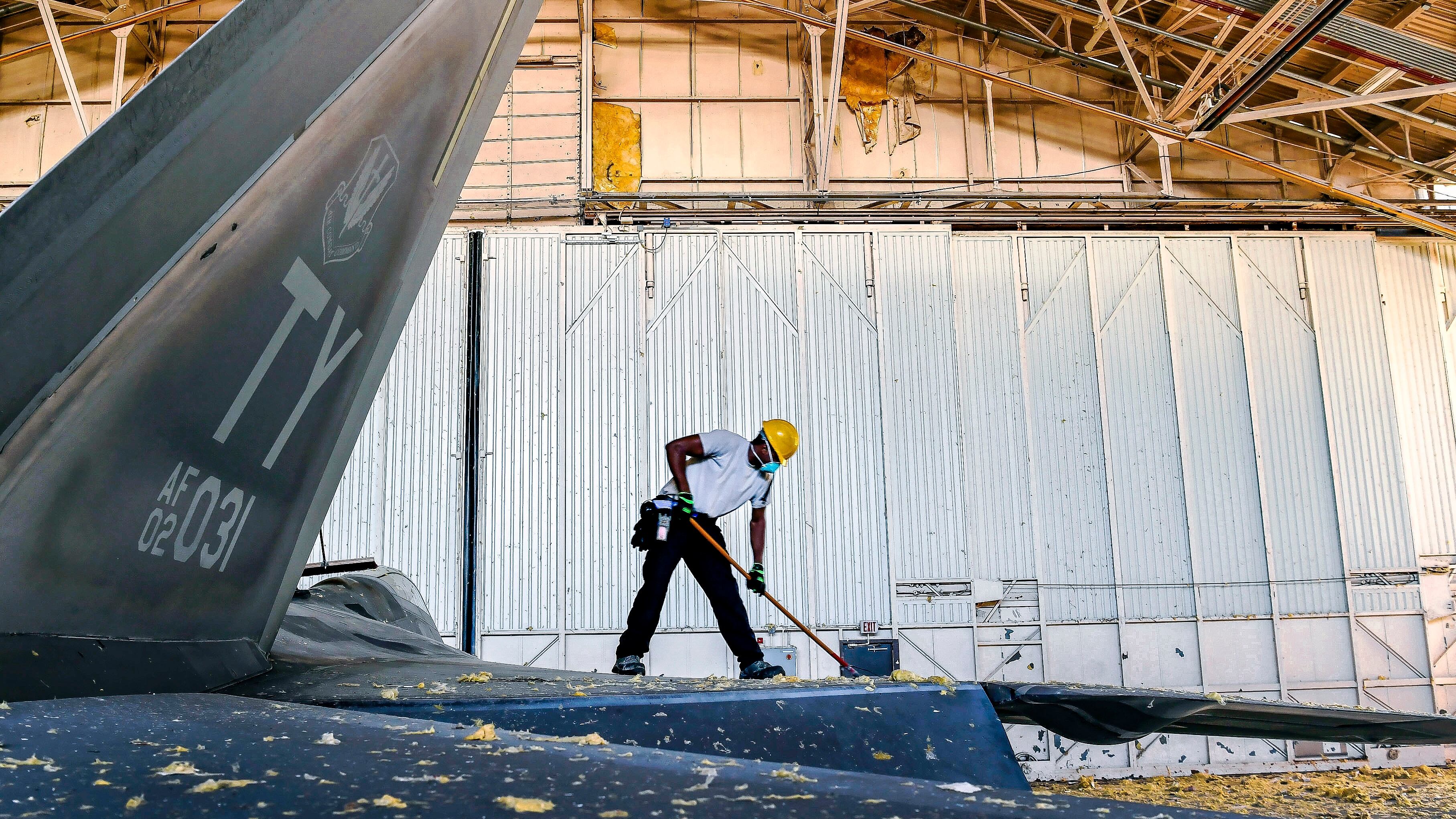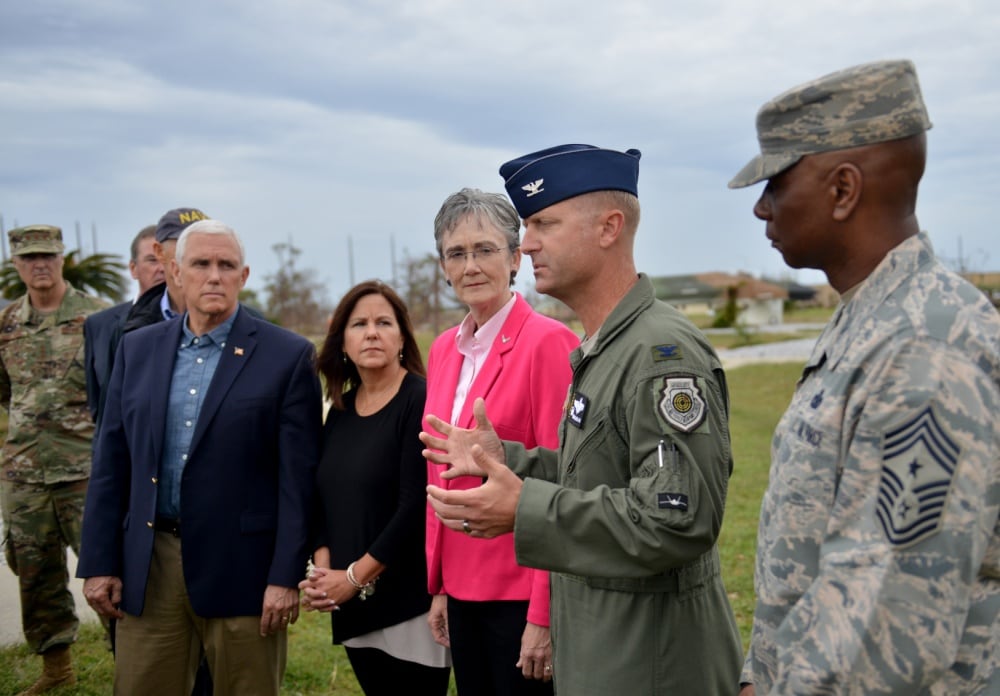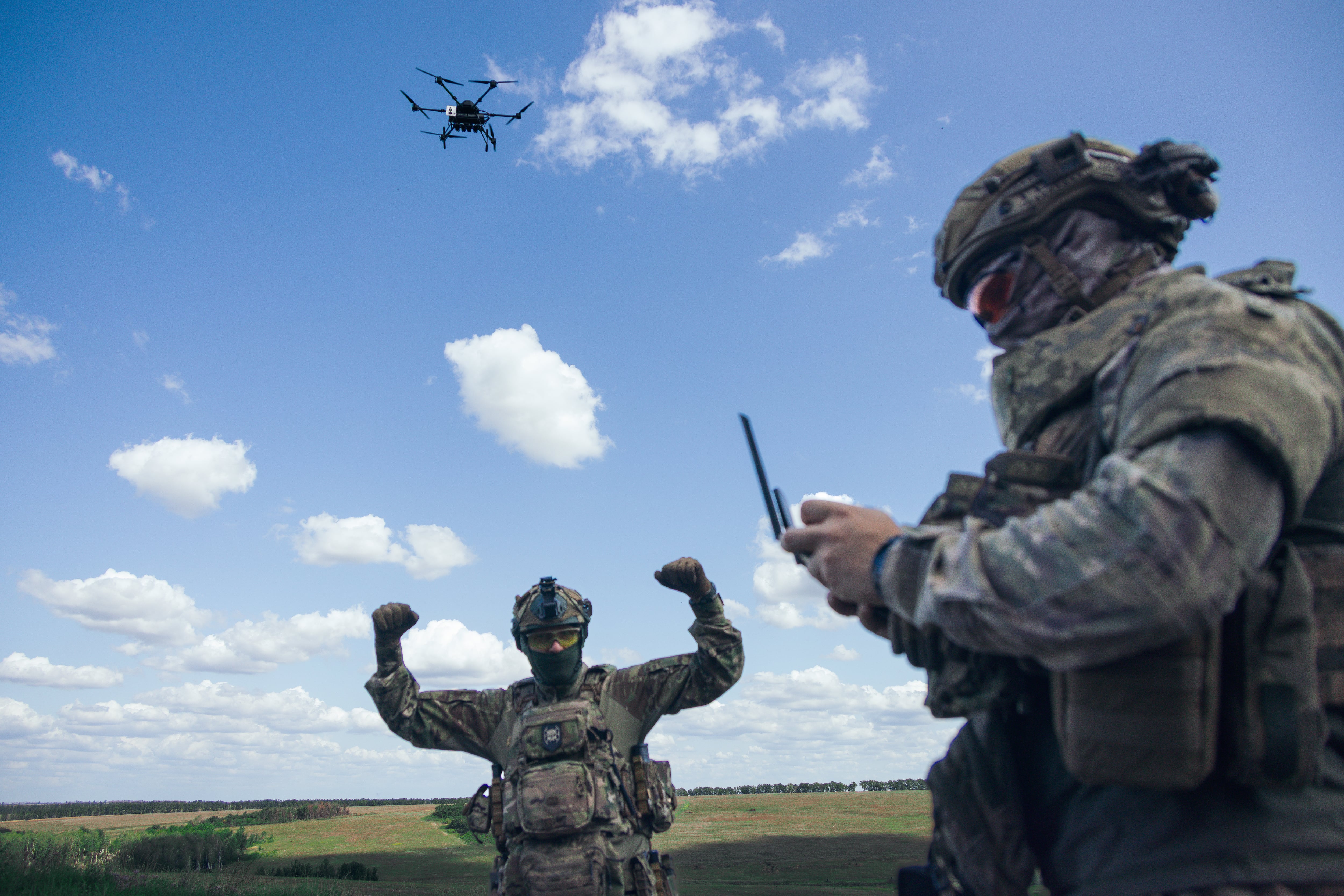Squadron commanders at Tyndall Air Force Base in Florida are starting to go through their rosters “person by person” as they try to figure out how to help those who were forced to evacuate by Hurricane Michael.
Tyndall commander Col. Brian Laidlaw, who is also commander of the 325th Fighter Wing, told Chief of Staff Gen. Dave Goldfein and Chief Master Sergeant of the Air Force Kaleth Wright during their visit to Tyndall Saturday that Task Force Harp — which is focused on Tyndall’s personnel and is one of several task forces set up to handle various aspects of the base’s recovery — is working on figuring out each person’s situation and what they need.
“We are now leaning forward, and squadron commanders are looking down their rosters, person by person, trying to figure out what works best for each situation," Laidlaw said, according to an Air Force release posted Sunday.
About 11,000 personnel and their families were ordered to leave before the Category 4 storm devastated large portions of Tyndall. Many of them are at nearby Eglin Air Force Base and Hurlburt Field, but others have moved elsewhere in the country.
The Air Force Personnel Center also said in a Friday release that it and Air Combat Command are now in the first phase of a three-phase reassignment plan for Tyndall personnel. As part of Phase 1, AFPC is processing orders to divert airmen who were previously scheduled to transfer into Tyndall, and processing orders for those who were already scheduled to move away from Tyndall.
“We must remain agile, innovative and responsive to Tyndall’s needs when we move into Phases 2 and 3 after Headquarters Air Force and ACC make decisions about the future of Tyndall missions,” AFPC Commander Maj. Gen. Andrew Toth said in the release. “We’ll support the 325th Fighter Wing commander’s manpower decisions based on those requirements. It’s important to understand that we’ll take into account the needs of our airmen and their families in all phases of the process.”
In a speech Saturday at the Airlift/Tanker Association’s conference in Dallas, ACC commander Gen. Mike Holmes said that Task Force Harp is trying to find new assignments for those PCSing airmen who are being diverted away from Tyndall, who had deployments lined up, and relocation options for evacuated personnel.
Holmes said Harp stands for housing, assignments, relocation and posture.

Laidlaw also said the infrastructure team, Task Force Phoenix, has brought in 1,200 people to try to figure out what can be saved, and rebuild what the base needs.
“Every single one of these people were sent here for a reason, and they have been doing amazing work,” Laidlaw said. “We are taking people in as fast as we can feed them and as fast as we can find a place for them to live, and every single one of them is doing exactly what we asked them to do.”
The team has inspected more than 300 of the base’s 704 non-housing buildings, Laidlaw said. At least 37 percent of those that have been inspected are fixable, he said.
“If you would have asked me two weeks ago how many of our buildings we thought would be operational, I would not have told you 37 percent,” he said. “This is a good news story.”
Holmes said Task Force Phoenix includes combat engineers who are trying to safeguard buildings, such as by putting tarps on them and restoring power and water to keep them dry and try to limit mold damage.
RELATED

A third task force, comprised of aircraft maintainers and structural engineers, is focused on repairing aircraft that were damaged in the storm and getting them flyable again, Holmes said.
Laidlaw also said that power has been restored to Tyndall, and the base is carefully turning on its circuits. The base’s sewage system, including the waste water and treatment plant, is fully operational, he said.
AFPC also has a 16-person team at Eglin to help Tyndall airmen and their families. The team includes specialists on military assignments and civilian personnel issues, airman and family readiness experts, Exceptional Family Member Program professionals, military family life consultants and school liaison officers. As of Friday, the airman and family readiness experts had resolved more than 250 needs assessment cases and were working on 350 more, as well as coordinating wellness checks for more than 200 families of airmen who are deployed or assigned to remote locations.
And AFPC has coordinated more than $6 million in Stabilizing Assistance Grants for evacuated airmen through the Air Force Aid Society.
Defense News' Jeff Martin contributed to this report.
Stephen Losey is the air warfare reporter for Defense News. He previously covered leadership and personnel issues at Air Force Times, and the Pentagon, special operations and air warfare at Military.com. He has traveled to the Middle East to cover U.S. Air Force operations.





